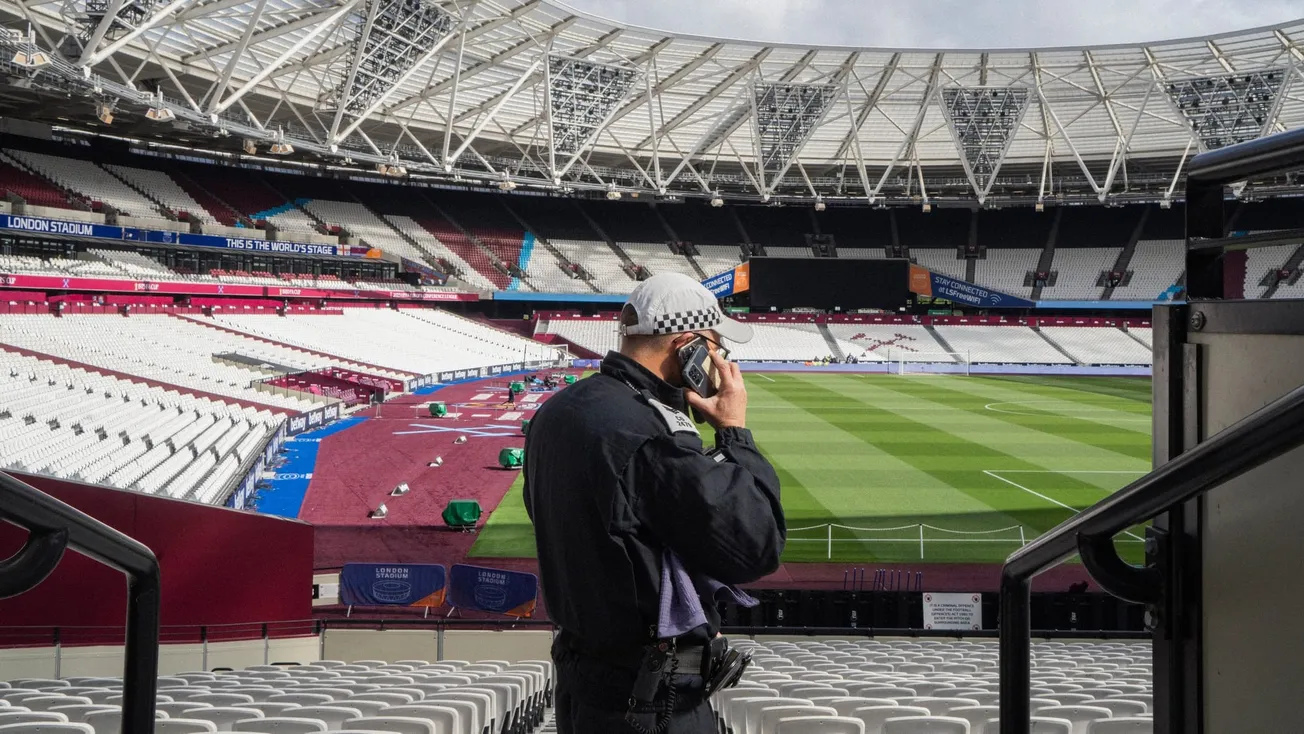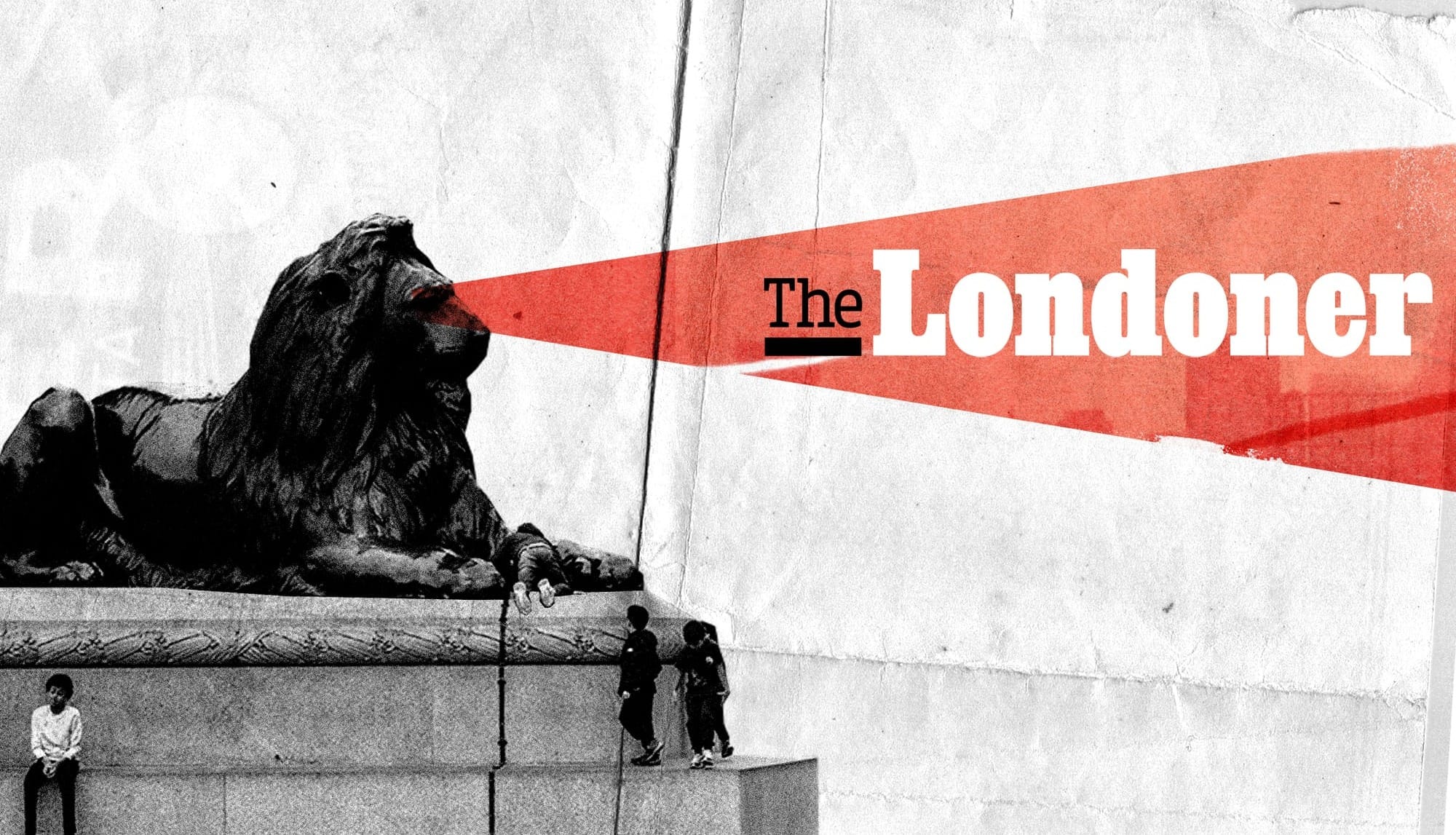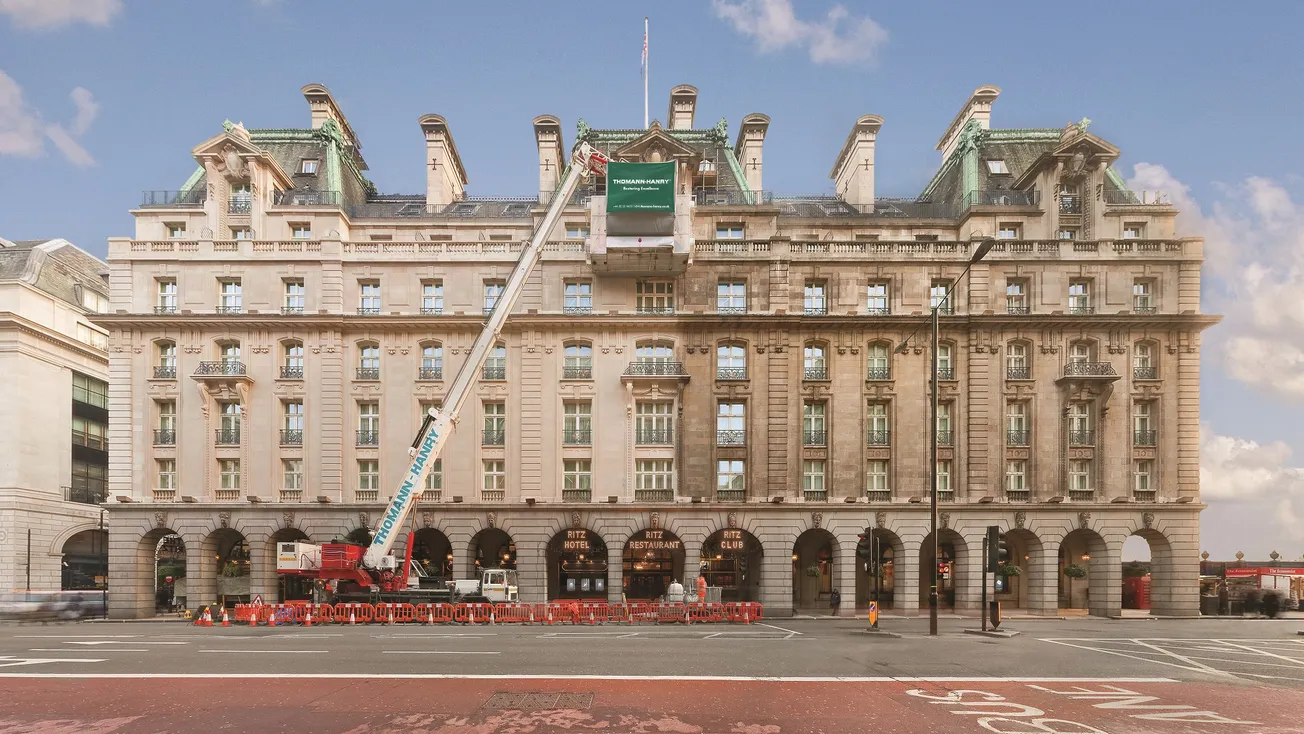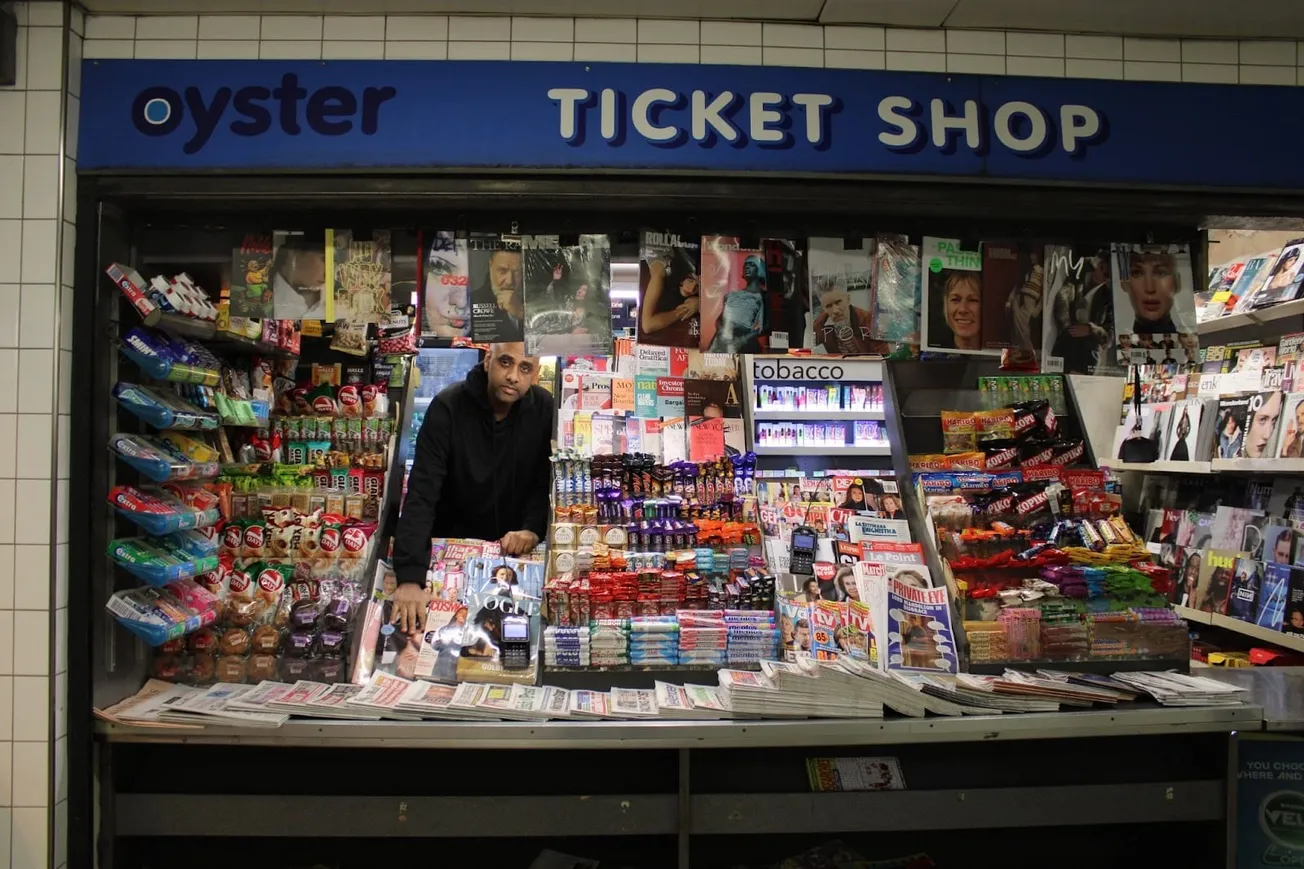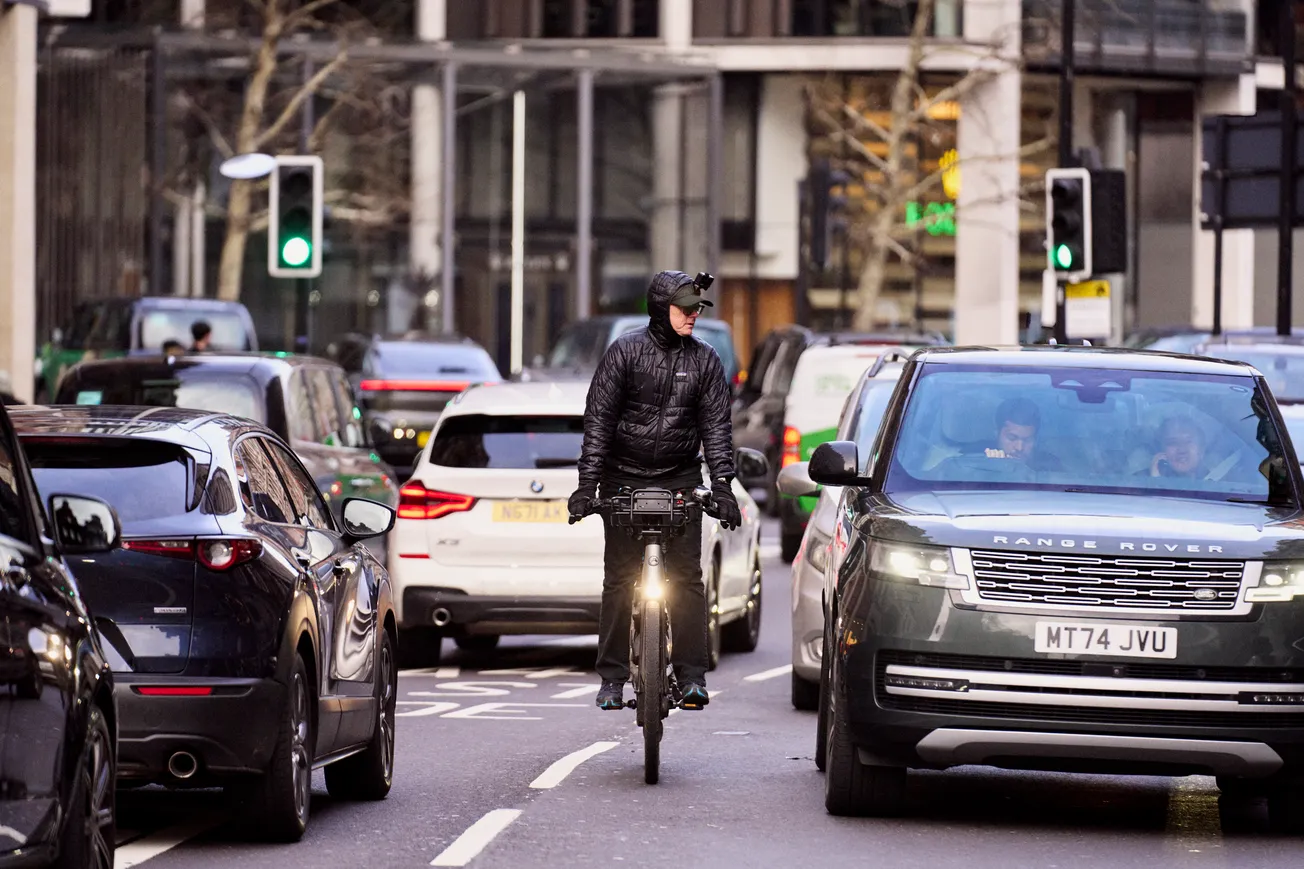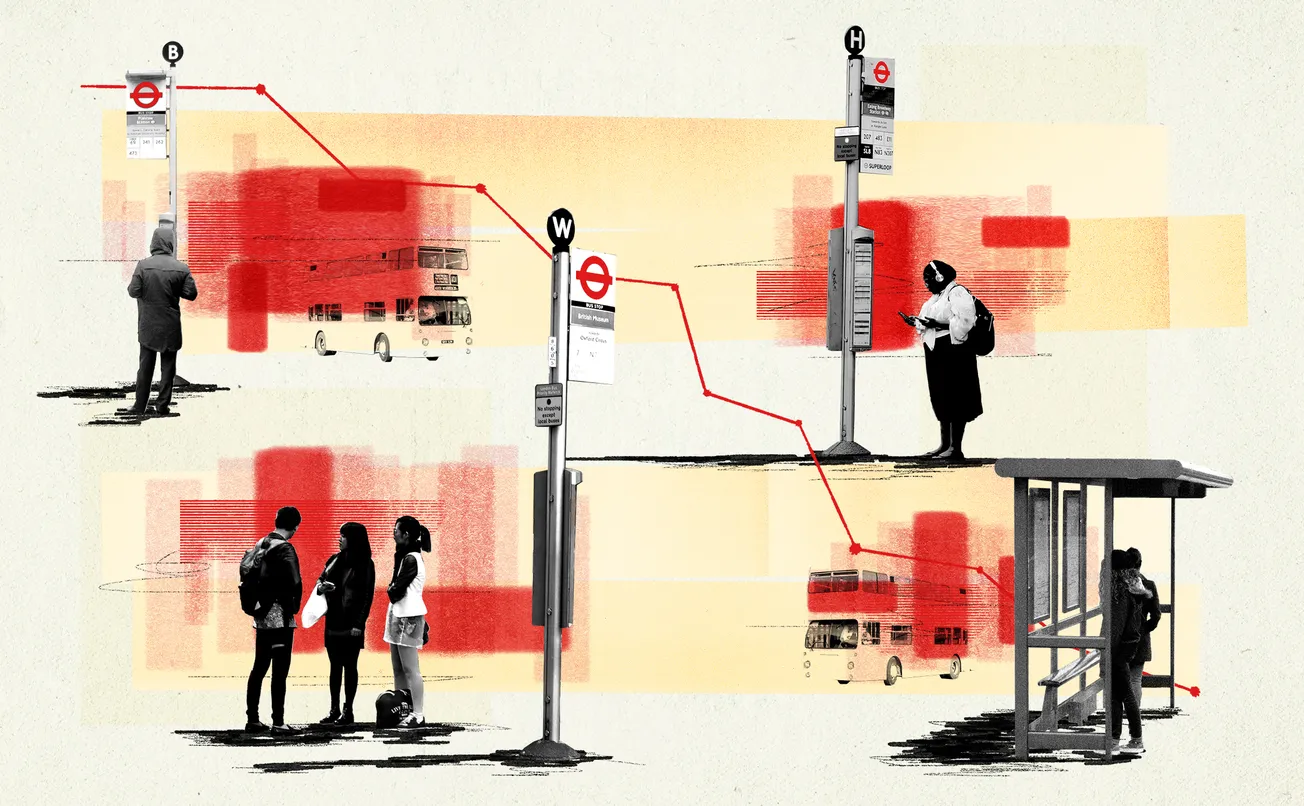I’m standing alongside football policing officers in the West Ham London Stadiums’ CCTV panopticon, watching operators meticulously replaying a clip of a fan in an attempt to discern the difference between an outraged waving gesture and a Nazi salute. We’ve been granted access to this room, but aren’t allowed to photograph its interior, so I’ll attempt to describe it to you.
Imagine a room where everything happens all at once and nothing passes by. There’s dozens of separate screens each accounting for a different section of the 61,000 fans in attendance today. There’s ringing telephones, heightened chatter and the undying hum of the present evaporating, second by second, minute by minute. At the back of the room, a clip of a man in a grey jumper repeats itself, his arm raises and falls. Then once again.
“Is that the one we just watched already?”
“We’ll go from 14:19 onwards.”
“The first Nazi gestures at 14:16.”
“You’ve got that one have you?”
“I think this is the first Nazi one.”
“Is it definitely this bloke?”
“In grey next to orange.”
We’re whisked out of the room before they can make a definitive decision. But, apparently, the evidence team caught the offender on camera out in the stands. He’s already been arrested. Rumour has it he started blubbering up the minute he left the stadium. Spurs and West Ham are still level at 1–1.
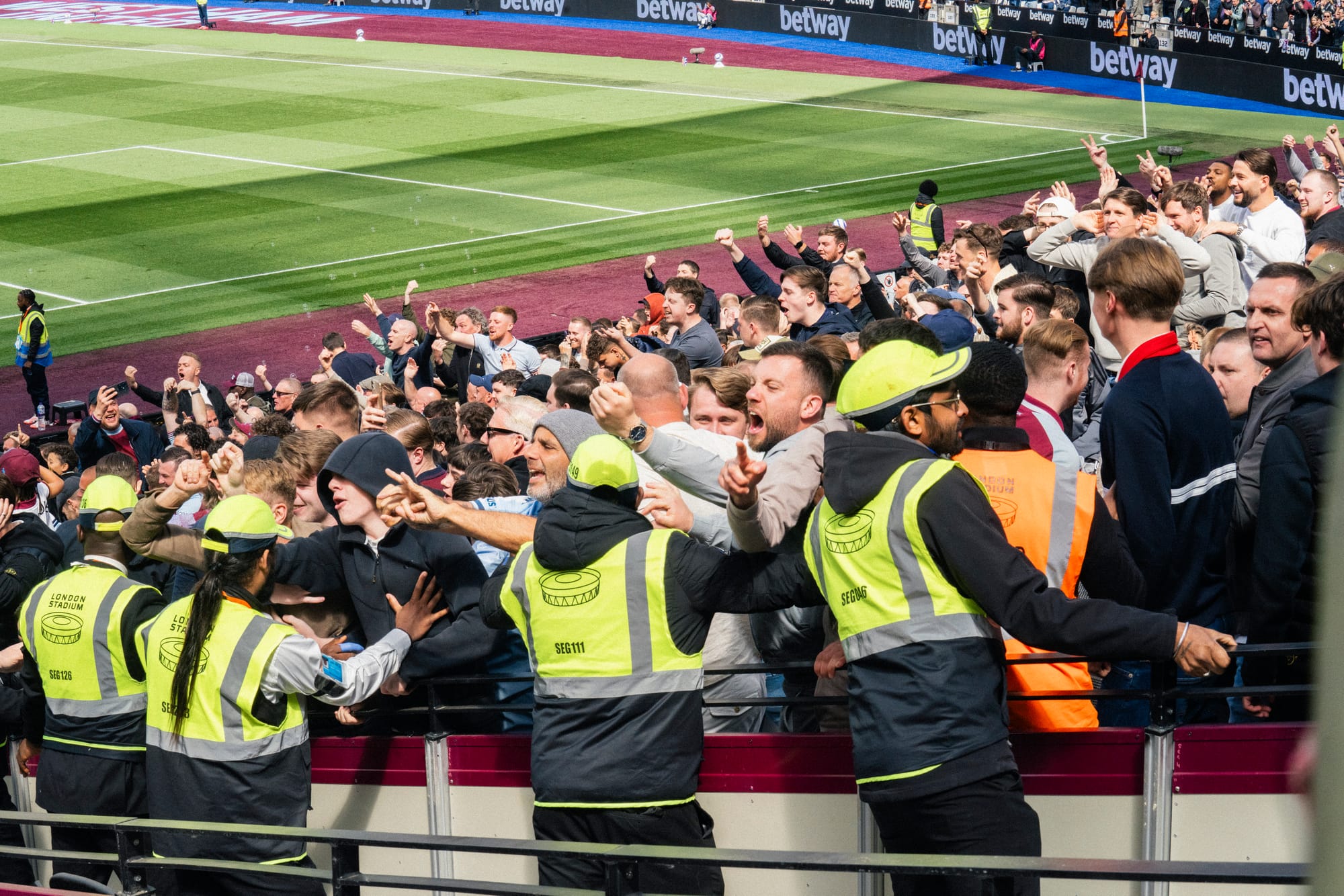
It’s Sunday morning and Tottenham FC have an away fixture at West Ham later in the day. I’m en route to a pub on the Isle of Dogs, in a bullet-proof, reinforced van driven by Sergeant Iain “Jonesy” Jones, 47, of the Central Football Unit, MO6 Public Order Command and his colleague, PS Benjamin Baldwin, 37.
In response to the football hooliganism of the 1980s, when hundreds of fans would run at each other waving stanley knives, police services around the country developed an interlocking network of cops dedicated to monitoring “high risk” British fans. In a rare moment of poetic exactitude, the Met designated the call sign for these cops as “ORACLE” for their ability to read violent football firms like tea leaves. Jones, however, prefers to refer to himself as a “spotter”. Each spotter is assigned a specific club: Jones’ has always been Tottenham Hotspur.
Jones has spent over a decade looking after Tottenham FC’s most dangerous regulars. They know Jones, and Jones knows them — they even bump into each other in Tesco. It’s all about “engagement”, police-speak for developing a mutual relationship between them and the fans they monitor.
Engagement takes place outside pubs and coach stations near the relevant ground. Jones will wander up to known fans, he’ll give them some information, they’ll give him some back. When engagement is off, and the fans have their backs up, Jones knows something’s afoot.
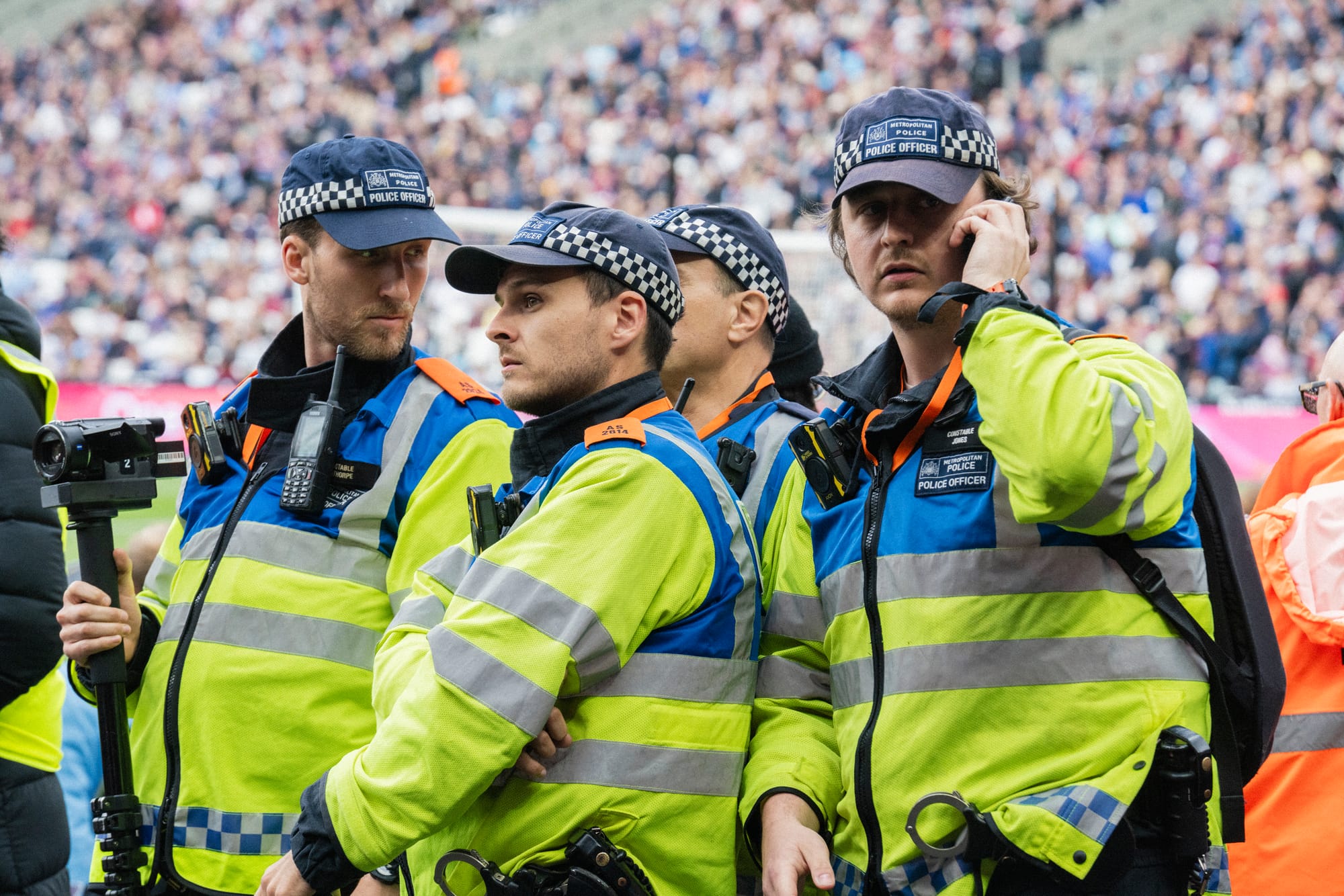
In 2019, Jones’ Dutch counterparts, tasked with spotting for an Ajax away game, failed to notice what was afoot, and Jones found himself caught in a very sticky situation.
Unexpectedly, prior to the game, the hardcore Ajax supporters had laid the groundwork for the Tottenham away game by forming a tight bond with the latter’s rivals, Arsenal, who ushered them into a Holloway pub for a pre-game drink. From there, the Arsenal fans planned out a viable route to the Tottenham ground and packed the Dutch off to enemy territory.
By the standards of football violence, the manoeuvre was Napoleonic and roughly sixty Ajax hooligans were able to wreak havoc outside White Hart Lane. The only police well-placed enough to contain them were Jones and a few other experienced spotters. “We were the net in a concrete tennis match”, recalls Baldwin. The incident earned Jones and Baldwin a commendation.
Spotters like Jones don’t just have to police potentially violent fans, they have to become an accepted part of their lifestyle. In this way, they navigate a delicate push-and-pull with the individuals they police. Violent fans may outwardly resent the constraints of the law, but, deep-down many know that spotters like Jones are the boundary between an uplifting brawl and having their skull broken in an underpass. They won’t admit it, but hooligans want the cops to call an end to a “tear up” — just as long as they arrive in the Goldilocks zone between sparring and death.
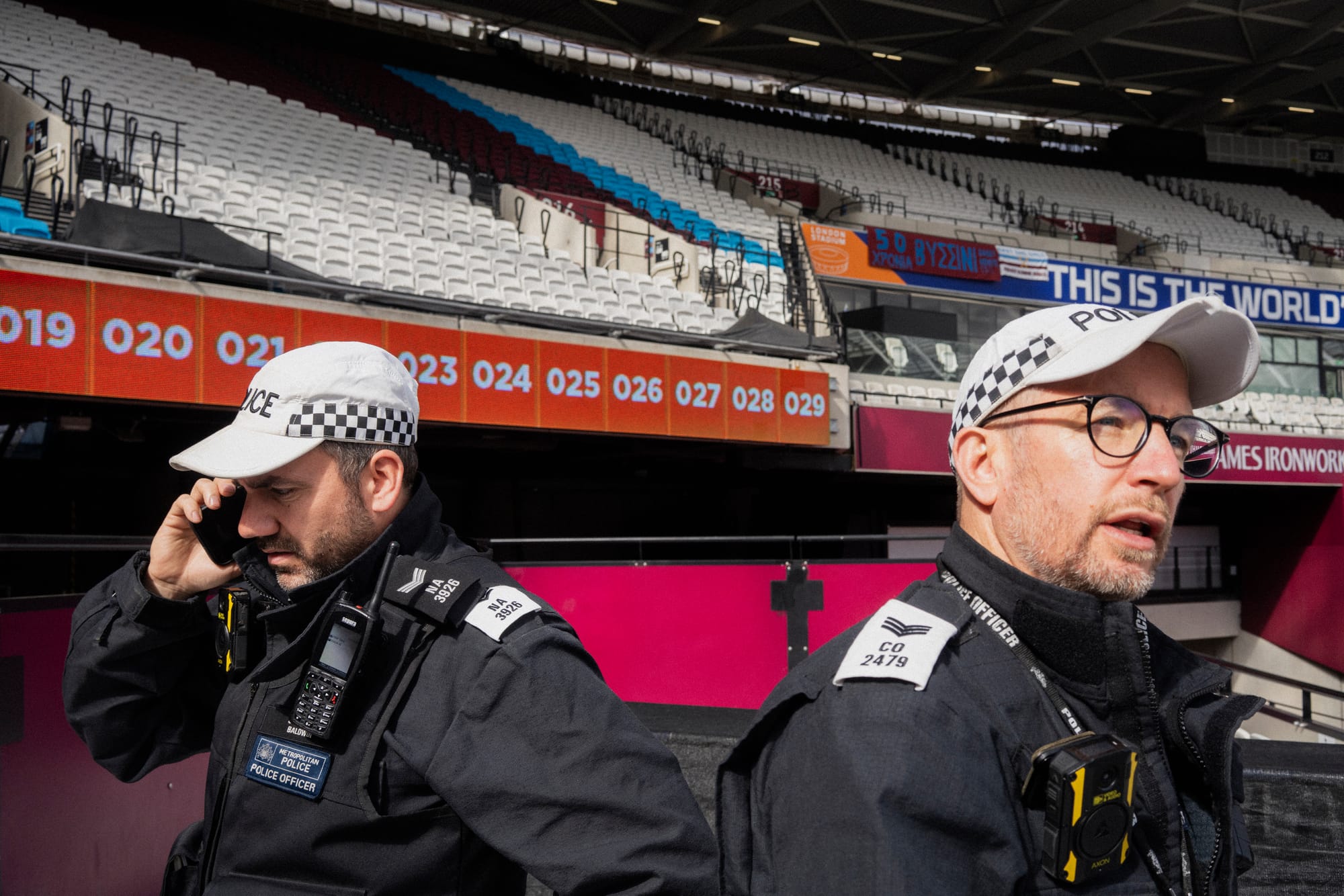
As we pull up at the pub, Jones explains that his team have received intel that a group of high risk Spurs fans have decided to drink there. He can’t tell me how the Football Policing Unit received that information but, according to a former London hooligan I spoke to, it’s almost certainly via a network of snitches. From the moment we arrive, we’re immediately given the stink eye from punters.
Jones and Baldwin snake around the tables, recognising faces. “He sorted me at a football game,” Baldwin says, pointing to a middle aged man nursing lager in the corner of the room, “he had weighted gloves on.” When Jones and Baldwin’s Polish equivalents came to town with the Legia Warszawa fans, they were too afraid to enter pubs like these.
Eventually satisfied, Jones calls the West Ham spotters for a follow-up scope, to check no high-risk fans are waiting in the wings. If a group of fifty West Ham fans were to sprint inside and a barstool were sent flying back out through one of the glass windows, he would be duty-bound to get between the fray until backup arrived.
A police officer for 27 years, Jones has been policing football since 2013. In three years, he’ll retire — a daunting prospect. Jones still remembers his first arrest — a cosmetics shoplifter in Enfield. Eventually he married a fellow officer — apparently a common occurrence. Jones’ wife tells him he’s got no emotion anymore. “[People] tell me something with a view of me reacting in a certain way, and I think, “yeah, that is awful”, but I don’t particularly feel the way I’m expected to. That sounds terrible and callous, but that’s just time wearing this,” he says, gesturing to his uniform. A Liverpool fan, Jones still loves football, but wouldn’t opt to watch it live anymore.
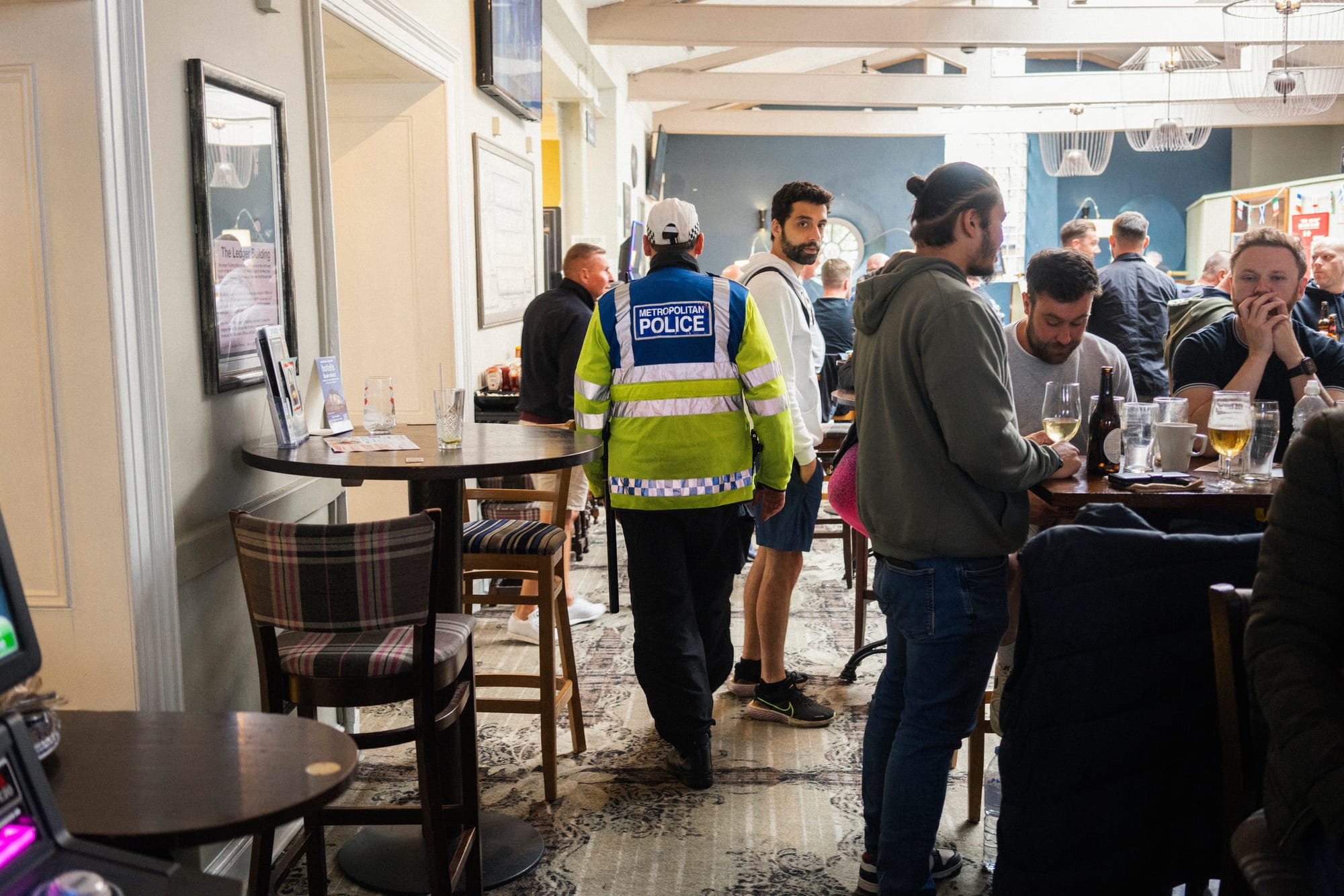
Though organised violence might be declining in British football, there's been an increase in reported sexual assaults and harassment in the context of women’s football. The Met largely attribute this to their Violence Against Women and Girls (VAWG) programme, aimed at “encouraging the football community to come forward and report all incidents where they felt unsafe”.
Another worrying uptick has been an increase in “tragedy chanting”, where one team purposefully mock dead opposing fans. Two years ago, an adapted Manchester United jersey reading “97… not enough” (referring to the Hillsborough disaster) resulted in a 4-year ban. Likewise, two Stoke City supporters were banned from all football grounds in England and Wales after mocking the two Leeds United fans who were killed in Istanbul twenty five years ago.
Jones mostly puts the decline of football violence down to bans. Between April 2024 and April 2025, the Met has dished out 273 of them. Issued by the courts, these bans are a pain in the arse for fans, who are barred from stadiums (and sometimes certain pubs) and have to surrender their passports during away fixtures. These aren’t applied solely in response to football violence either. My hooligan source tells me of a “guy who got done with a gram of sniff for personal use… he’s on a three year banning order. They even nicked a bloke and said he was touting when he’d just given his ticket to a pal.”
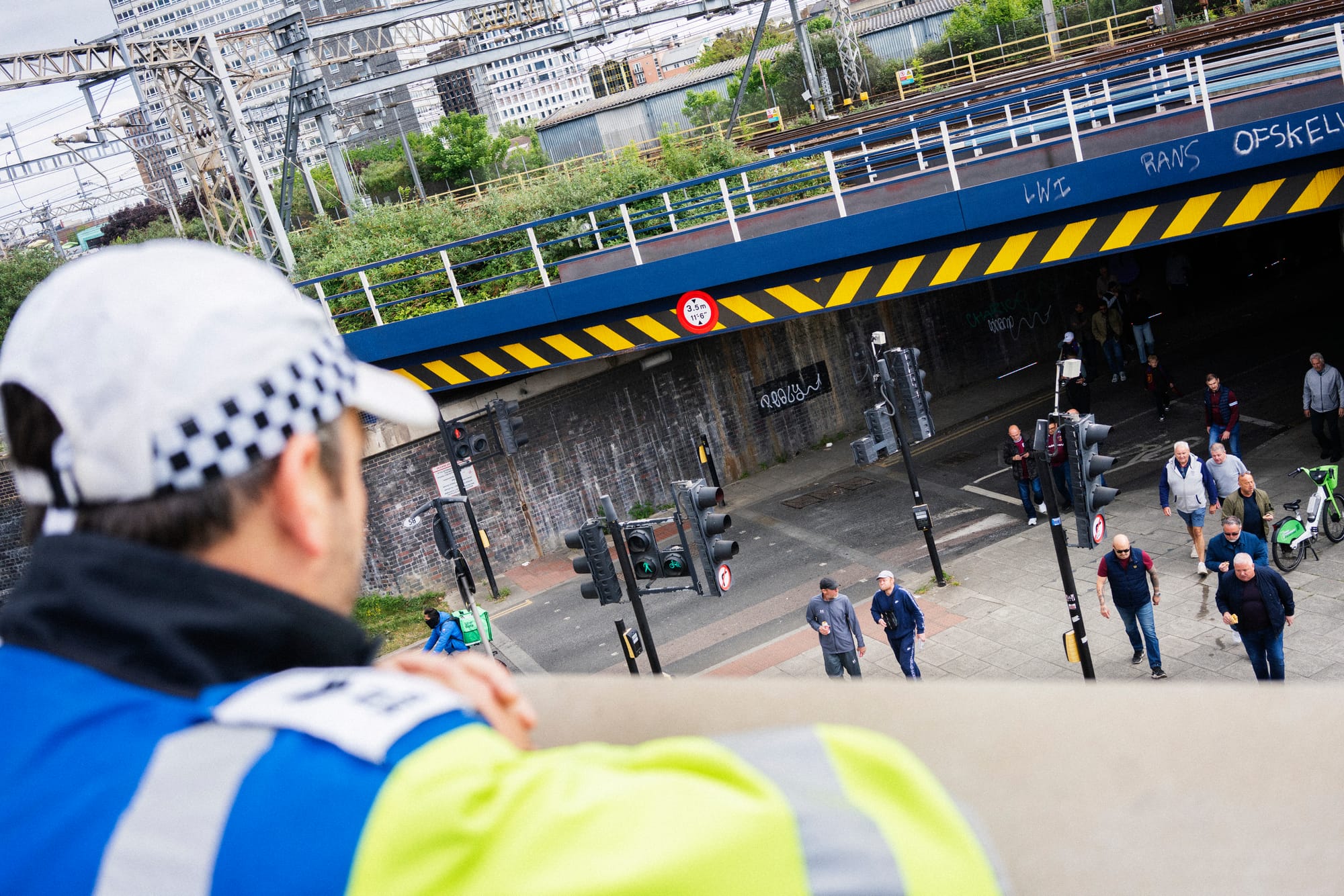
Football violence regularly falls apart due to practical errors from perpetrators. Having learned from officers in the football policing unit, I've noted some obvious lessons for would-be hooligans:
- Quit smoking. If you’ve managed to shake the spotters, and have arrived at a pub where you can plan your antics in private, make sure none of your comrades wander outside and have a fag out on the street where they can be easily picked out. If you won’t quit smoking, at least find a pub with a smoking area.
- Unpredictably alight public transport. This one speaks for itself, but if you’re looking to fight rival fans outside a particular stadium, don’t get off at said stadium.
- Learn received pronunciation. It’s hard to judge what team you’re supporting if you don’t have a giveaway accent.
- Burn your trainers. Everyone merrily disposes of their jumpers and T-shirts after they commit a crime. No one wants to burn their trainers.
In the last year, the Met spent over £20m on football policing in London. The sport is still the number one risk to public order, according to Jones.
We, the football-loving public, take this for granted. After all, having largely usurped God as the national connective tissue, football means a lot to the UK. However, there’s an ongoing debate in football policing as to who should foot this bill. Officers like Jones think the clubs themselves should contribute a larger sum to bolster the safety procedures around what are, technically, private events.
“We had disorder everywhere when this stadium was first set up, because there was nowhere to keep the fans apart,” Jones complains. We’ve arrived at West Ham’s London Stadium (formerly the Olympic Stadium) and are navigating the labyrinthine overpasses that lead to the ground. Eventually we rendezvous with the Tottenham away fans as they make their way to the away end, safely immured behind a containment of police. At the front, the Met’s “Mounted Branch” ride large horses: ancient fear.
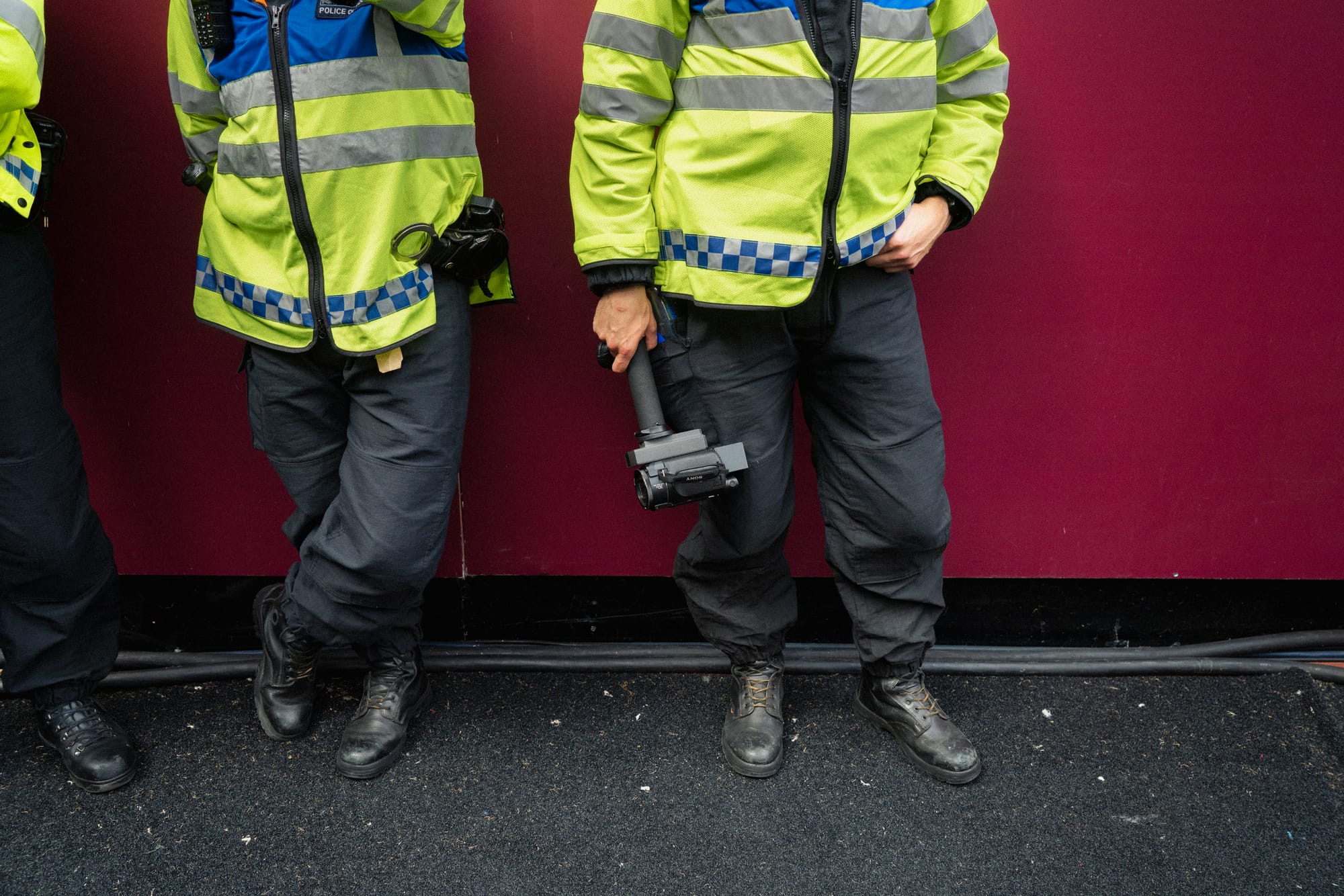
“They can do the work of a lot of police officers,” Jones says. “Even when they brush past you can feel their strength.” In 2019, former UKIP candidate, Derek Jennings, 53, was handed a 20 months sentence for punching a police horse before a Portsmouth derby at Fratton Park.
There’s a brief moment of goading when several West Ham fans approach the police line aggressively singing the lyrics of their club anthem “I'm Forever Blowing Bubbles”. The Spurs fans reply in unison. “West Ham are wankers everywhere they go!” The stadium turnstiles — some stadium turnstiles can be programmed with varying “flow rates” to thin out the crowd — mark the end of the walk. Only officers West Ham have paid for are allowed beyond this point. The rest form ranks. Jones and his fellow spotters seem pleased with themselves so far.
Walking into the stadium with his son, a bald man acknowledges Jones with a nod. “He’s had a ban before,” Jones explains as the man disappears into the crowd holding his child’s hand. “He was trying to throw someone through a window… he was bouncing him off the glass.”
After kick-off, returning from the CCTV room, we make our way to the bowels of the stadium, Superintendent Gerry Parker gathers the spotters unit for a briefing. He sounds tired. The vague crackle of police radios swell in ghostly whispers. Superintendent Parker has such a decidedly policeman-like voice, that he almost sounds auto-generated. If Scotland Yard could talk, it would sound like Superintendent Parker.
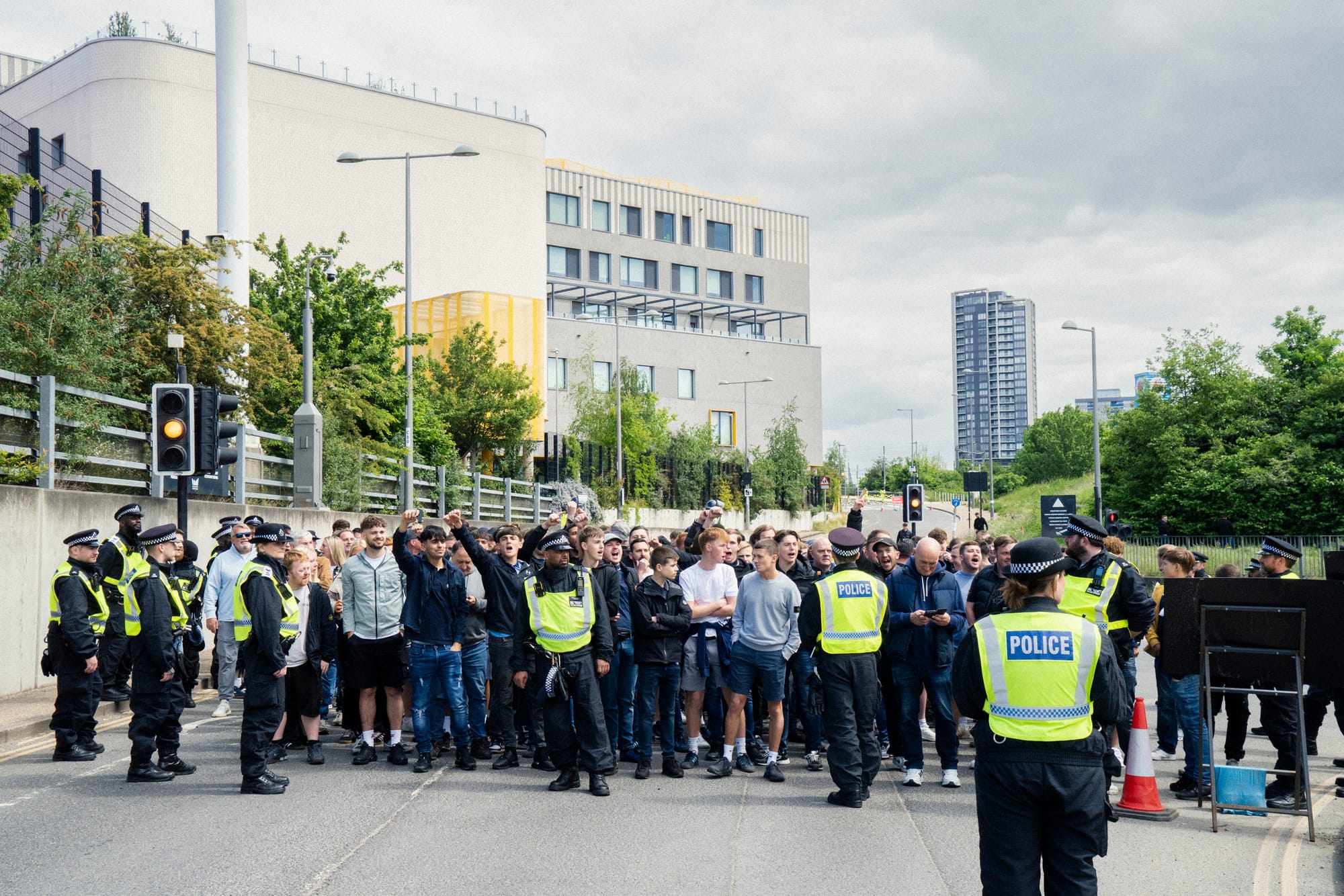
“Right, so, information and intelligence wise: good ingress. I thought the escort of the fans into the stadium was really tidy… We’ve had two arrests that have just come in almost at the same time, one for a Nazi salute — that’s racially aggravated public order — and then monkey chanting, if I can call it that, aimed towards the Tottenham fans which did incite them… There might be some statements we need to take from the Tottenham fans, and I think the EGs have got it all on camera as well. Other than that, no issues at all. So fingers crossed for the rest of the game. And amazingly, Tottenham aren’t losing, which is an achievement in itself.”
It’s fairly normal for football policing officers to get sucked into the fortunes of their respective clubs. Jones and Baldwin still remember being present when Lucas Mora’s hat trick brought Spurs back from the dead in the 2019 Champion’s League semi final. That said, one of the strangest aspects to spotting during a match is that a goal celebration is your most focussed moment. It’s when everyone is losing their minds that football police are required to keep their heads.
“So,” Parker continues, discussing plans for when the fans exit the stadium, “if they don't come out in one coherent group, that's fine, we'll just police it out and just go with that. But if they come out in one group, then just be prepared to take them back to where they came from.” As the briefing continues, Parker opens the conversation up to the rest of the room. Aside from one potential flashpoint near Stratford station where fans might merge, no pressing issues are brought up, and the officers get a moment of respite to sip on instant coffee and share chocolate biscuits.
Football spotting is often viewed by the rest of the force as a “bit of a jolly” or simply an excuse to travel. It’s a stereotype spotters, most of whom work on football alongside response beats, are eager to dispel. On trips away, particularly in Germany, foreign police forces press them into seventeen hour days. I’ve been shadowing the job for roughly six hours and I’m already exhausted.
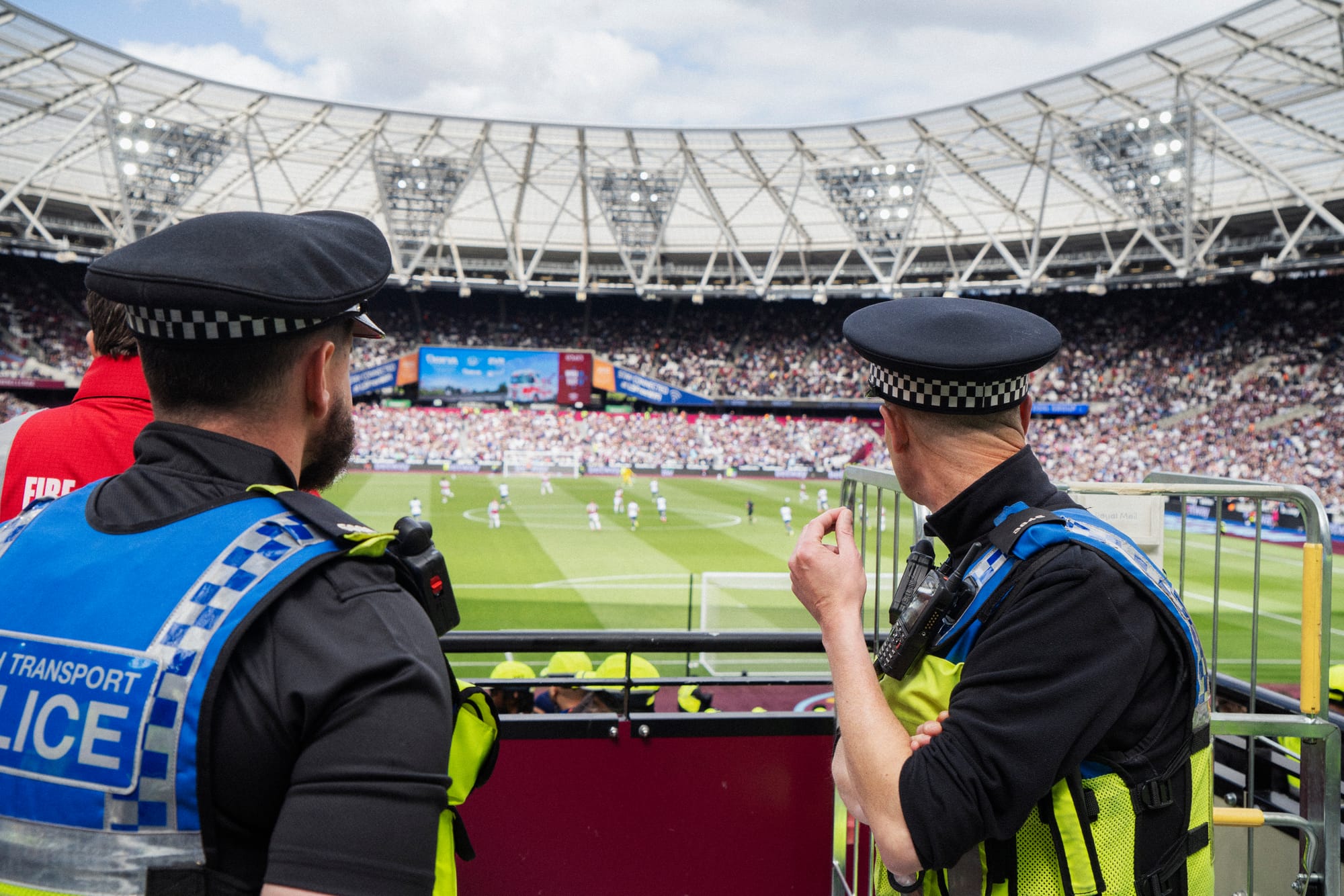
Over a cup of tea, I get talking to PC Harry Patterson, a young officer and the dedicated spotter for Millwall football club. Anyone with even a passing understanding of the history of football violence will know the weight of the phrase, “I monitor and police the hardest Millwall fans,” but Patterson insists most of them are amicable and that the job treats him well. “They’ve got a reputation, but they also won Family Club of the Year in 2017. Most of the fans are just eccentric, they want to try to uphold their reputation, it’s a bit of an act, football thuggery. It’s bravado. That’s a good word,” he says.
Pretty soon we’re discussing where cops like to eat in Camberwell. There’s a delicate process of word of mouth that goes into the Met choosing somewhere to eat. Some restaurants don’t want police dining there and, consequently, officers are paranoid the kitchen might be spitting in their food. When they find somewhere they trust, news spreads quickly and those eateries become packed with stab-proof vests. On Camberwell’s church road, there are two such restaurants: Mr Falafel and Falafel & Shwarma. Patterson is unsure which is best.
At long last, Jones and Baldwin are giving me a lift back to Whitechapel in the van. Behind me, a stack of polycarbonate riot shields rattle against each other. I’m testing Jones’ knowledge of hooligans by showing him mugshots and seeing if he can identify them. Consistently, he can.
“The Thorp brothers?”
“Yes.”
“Bradley Richard Doughty?”
“Uh huh, yep.”
The best known Spurs hooligan is Dante Hawkins, an MMA fighter nicknamed “The Bull”. Currently, he’s serving a 40-month custodial sentence for violent disorder but apparently he can be quite charming.
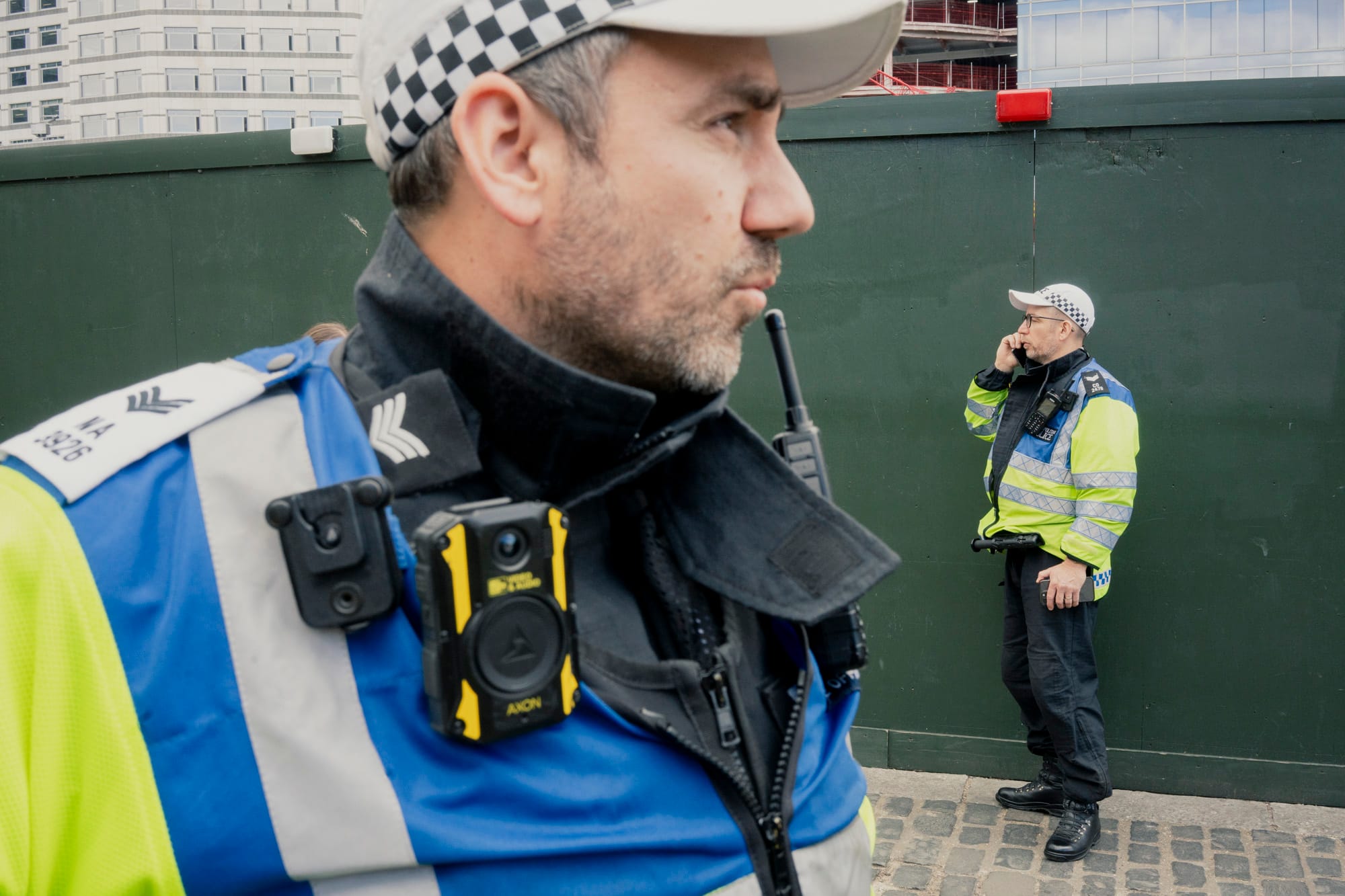
I wonder if Jones and Baldwin, who, between them, have arrested thousands of people, ever stops to consider the seismic impact that arrest might have, particularly if it’s a first arrest. “You’ve got to remember, most of the people we arrest, we weren’t present when the crime was committed… you’ve got to spend hours with these people… you want to make it as easy as possible.”
Career criminals know the deal, they’re easier to work with once the cuffs are on. “They know how to get the best out of you,” Jones says, “they want a coffee with six sugars in it.”
For the most part, Jones and Baldwin remain light hearted about their profession. However, occasionally this protective mask slips. Baldwin remembers being called out to someone who’d set themselves alight inside a car. “It didn’t register as a person” he confesses, staring out towards the darkening horizon as we drive away from the sun down the A11. “It’s almost like an out of body experience sometimes.”
As I get out of the car, I open my phone to see that my beloved Manchester United have lost to Brentford. For a second, it all occurs to me at once: all those briefings and planning meetings and spotters and pub visits and social media scans and travel logistics that accompanied the game, or any game. Then Jones and Baldwin depart. They become invisible again, and all that’s left is the scoreline.
If you haven't already, you can become one of our founding members by subscribing to The Londoner with our forever 20% early-bird discount. Click here to forever get an annual membership for the discounted price of £71.20, or click here to forever get a monthly membership for £7.16. Hurry though — this offer lasts only until the end of April.


